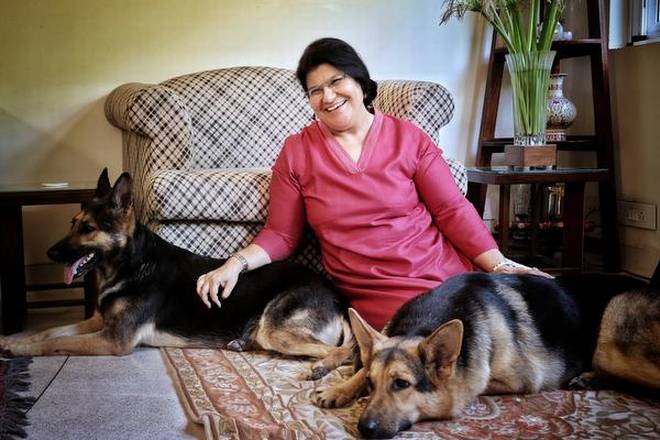Paro began reading plays by Bertolt Brecht and Tennessee Williams much before her peers did, and it led her to become a teacher of drama. “There were not many Indian plays that the kids or I wanted to do. Most were western scripts. If Indian, they were drawn from the Mahabharata or Panchatantra with stories that often did not connect. So I started writing plays. Most literature for children is escapist, which is fun but there is also a need for truth, a need to represent young people who are not represented or under-represented. It empowers children to find a commonality. So I wrote consciously on hard topics always ending on an upswing; young people have the ability to be instruments of change,” says Paro, speaking of No Guns At My Son’s Funeral, Like Smoke and The Other. “The responses shake me up. Have I scratched a wound or put a balm?”
Building bridges
And still, Paro perseveres to tell it as it is; like she has in Nomad’s Land (published by Talking Cub, the children’s imprint of Speaking Tiger). The novel is about Shanna, a Kashmiri Pandit, and Pema, a Qhushavan and the tragic circumstances that bring them together. In tight, energetic prose, between the lost paradise of Kashmir where Shanna’s father is killed in a grenade attack and Pema’s reimagining of a homeland she has never seen, Paro weaves a tapestry of falling walls, blurred borders and identity in a time of cultural assimilation. “In an age of Rohingyas, Syrians and Tibetans, Nomad’s Land could belong anywhere. We need to connect our children to these realities. I feel we haven’t done that with stories of Partition; because we follow the culture of aage chalo [look forward].”Paro writes two hours every day, sometimes in a traffic jam, sometimes two books at a time. She is also a grandmother who has managed to keep a ear to the ground when it comes to what kids think and speak these days. “I’m a great eavesdropper,” she laughs.
“Children should be left to choose the reading of their choice but parents and schools tend to monitor. There is no control over what they read on the Internet but more on what they read in a book. I’ve had children come up to me during my Literature In Action sessions and tell what they’d like to hear more about — whether it is domestic violence or masturbation. I may write it and it may be published, but it will never make it to a school library.” Paro believes that ‘forever skies’ — a term she uses in Nomad’s Land — is what should be bequeathed to our children. “When you tend to unsee the wholeness you cut up their sky. Children do not demand assimilation. And because of that the world and our country is in good hands.”



.jpg)






.jpg)

.jpg)
.jpg)
.jpg)
.jpg)
.jpg)










Sorry! No comment found for this post.